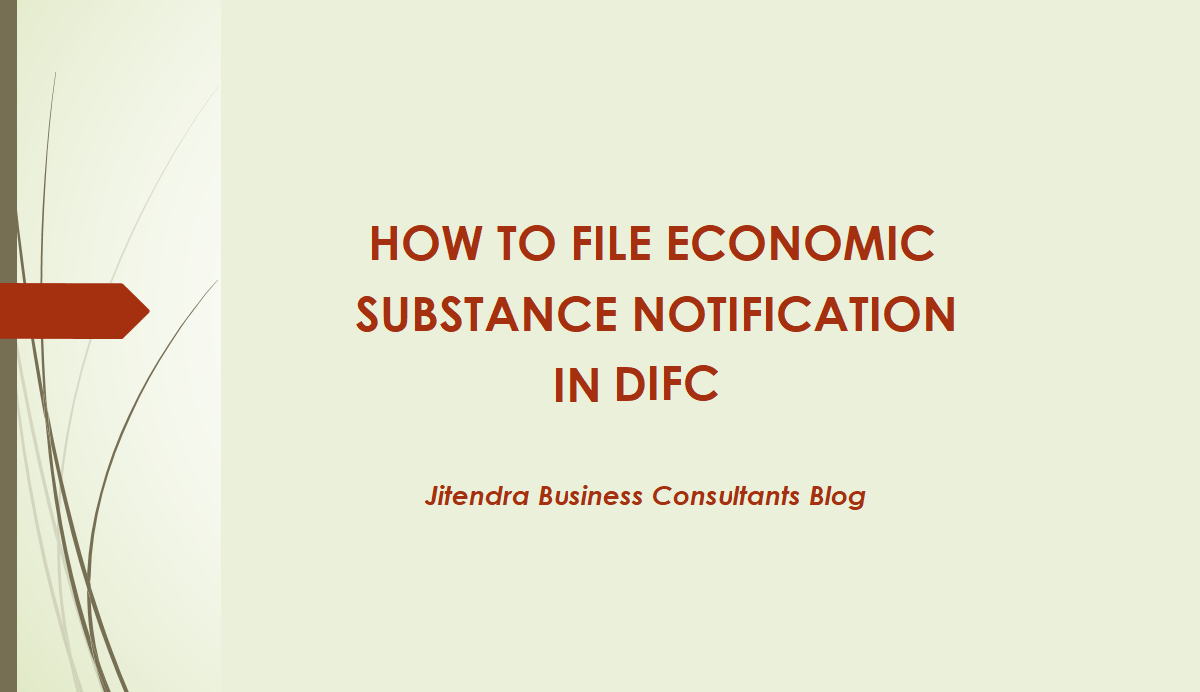The Economic Substance Regulations in UAE have come into effect and the mainland, free zone (including financial free zones) and offshore companies that carry out relevant activities are required to demonstrate economic substance. In line with this, the companies licensed by the Dubai International Financial Centre (DIFC) free zone are also required to ensure ESR compliance. As a first step, all the DIFC companies should file the Economic Substance notification before the due date of 30 June 2020 for the reportable financial year 1.1.19 to 31.12.19. The DIFC companies that are regulated by the DFSA are also required to file the notification with the DIFC Registrar of Companies.
Also read: UAE Economic Substance Notification Deadline for Free Zones & Mainland Companies
Background of Economic Substance Regulations in UAE
The UAE enacted the Economic Substance Regulations in a bid to comply with the global standards of Base Erosion and Profit Shifting (BEPS). The enactment of ESR in the UAE resulted from the country’s commitment to the OECD as a member and also as a response to the EU’s review of the country’s tax framework. As per the regulations, the companies are required to
- File annual ESR notification with the regulatory authorities whether they are conducting the relevant activities
- Conduct Economic Substance Test if they are carrying out the substantial economic activities within the UAE
- File annual Economic Substance Report/ Return to the regulatory authority
Economic Substance Regulations in DIFC
Since the ESR is applicable across the UAE irrespective of the business jurisdiction, the DIFC entities are also required to make an assessment on whether they come under the scope of the ESR.
The following are the three steps regarding the ESR in the UAE, which the DIFC entities need to consider.
1. Economic Substance Regulations Notification in DIFC
All the companies licensed by the DIFC are required to file the ESR notification with the DIFC Registrar of Companies before the due date. The ESR notification is like a self-declaration in which the companies are informing the DIFC authority whether they are carrying out the relevant activity or not. The companies need to disclose the following things in the ESR notification,
- Declare whether relevant activities are being conducted
- Disclose whether the earnings from the activity is being taxed outside the UAE
- The financial year-end date
2. Economic Substance Test for DIFC Entities
The DIFC companies that carry out the relevant economic activities are required to demonstrate
- The companies and the relevant activity is directed and managed in the UAE
- The Core Income Generating Activities (CIGAs) are conducted in the UAE
- The company has adequate full-time employees, premises, and expenditure
3. Economic Substance Reporting for DIFC Companies
The DIFC companies that carry out the relevant activities in the UAE are required to file an annual Economic Substance Report to the DIFC Registrar of Companies. The DIFC entities are required to submit the annual Economic Substance Report within 12 months of the financial year-end. The report should include details related to economic activity, income, expenses, and assets. The report should also declare whether the economic substance test has been fulfilled.
Also read: ESR Compliance: 5 Requirements for the UAE Economic Substance Test
Penalties for Not Submitting the Notification to DIFC Registrar
The UAE companies that fail to submit the ESR notification will be subject to a fine in the range of AED 10,000 to AED 50,000. In addition to this, the DIFC guidelines state that the DIFC companies will be subject to a penalty of up to USD 25,000. This penalty is as per Article 31(2) of the Operating Law, DIFC Law No. 7 of 2018 on the failure to comply with a requirement by the Registrar.
Penalties for Filing Incomplete or Incorrect Information
As per the UAE Economic Substance Regulations, all the mainland, free zone and offshore companies including the DIFC entities are subject to a fine of up to AED 50,000 for providing false or incomplete information in the ESR notification. For the same offence, the DIFC companies will be subject to a penalty of up to USD 50,000 by the Registrar as per Article 66 (2) of the DIFC Operating Law for hiding information.
How Jitendra Chartered Accountants Help DIFC Entities with Economic Substance Regulations Compliance?
The UAE has enacted the Economic Substance Regulations to comply with the global standards in combatting the menace of harmful tax practices. As a result, the free zone, mainland and offshore companies that carry out the relevant activities are required to demonstrate economic substance in the UAE. The companies need to ensure ESR compliance through ESR notification, economic substance test, and annual economic substance reporting. However, failing to file ESR notifications or filing incorrect information will land the companies in trouble. It is in this scenario that a reputed audit firm like Jitendra Chartered Accountants (JCA) becomes valuable for the companies. JCA can help companies with
- Filing the ESR notification
- Drafting & filing ESR report to the Regulatory Authority
- Suggest solutions to the firms if they fail to satisfy economic substance test
